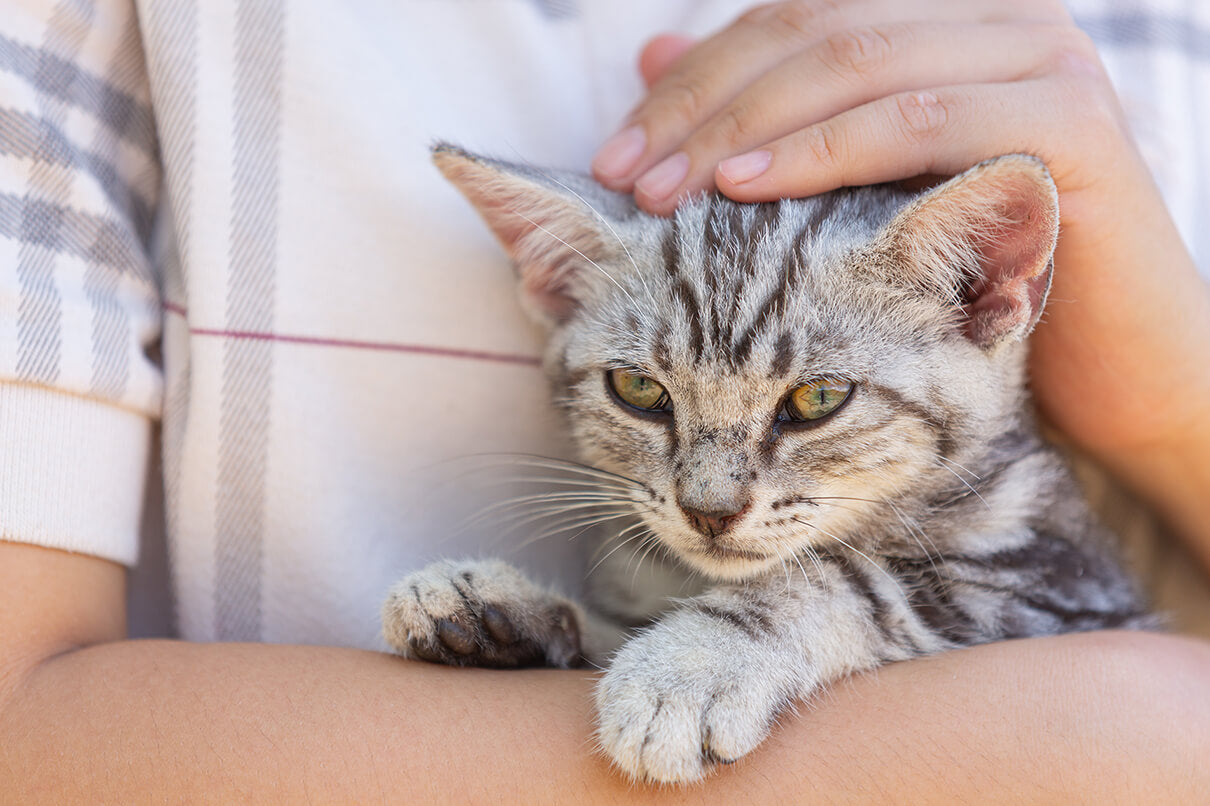
- by Dr.Thilo Senst
Can Food Allergies Cause Itchy Skin in Cats? Signs, Solutions & Tips
- by Dr.Thilo Senst
Can Food Allergies Cause Itchy Skin in Cats?
As pet owners, we know that keeping our cats happy and healthy involves managing their diet and environment. When a cat starts exhibiting signs of itchy skin, such as excessive scratching, biting, or licking, food allergies could be an underlying cause. While skin issues in cats may stem from various factors, diet is increasingly recognised as a common contributor. In this article, we’ll explore how food allergies can lead to itchy skin, what to watch for, and how to manage and alleviate symptoms.
Food allergies in cats are the result of the immune system reacting to certain ingredients in their diet as if they were harmful. This immune response leads to inflammation, which can often manifest as skin irritation. According to research by Cats Protection UK, around 10% of all skin issues in cats are diet-related, with symptoms frequently presenting as itchy skin or dermatitis.
While these symptoms may appear straightforward, they are often misdiagnosed, delaying effective treatment for our feline friends.
Food allergies in cats can display a range of symptoms, with itchy skin being one of the primary indicators. Here’s what to look out for:
Just as humans may experience skin irritation when consuming certain foods, cats react similarly. Imagine a person who suffers from eczema whenever they eat dairy; likewise, a cat allergic to a specific protein may display itchy skin and other signs of discomfort.
Certain ingredients are more likely to cause allergic reactions in cats. The most common culprits include:
Managing cat itchy skin not only improves your pet’s comfort but also contributes to their overall health:
| Common Allergen | Percentage of Cats Affected (UK Source) |
|---|---|
| Beef | 35% |
| Fish | 25% |
| Dairy | 20% |
| Grains | 10% |
These percentages illustrate that food allergies are relatively common, underscoring the importance of recognising and addressing the signs early.
Preventing food allergies before they escalate can save your cat from unnecessary discomfort. Here are some effective tips:
Q1: How quickly can a food allergy cause itchy skin in cats?
Food allergies can manifest within a few hours to several days after consuming the allergen, with symptoms such as itchy skin often appearing first.
Q2: Can I treat my cat’s itchy skin at home?
Yes, minor cases of itchy skin can be managed with dietary changes and topical solutions, like Dr. Senst Antiseptic Itchy Cats Spray. However, consult a vet for severe or persistent cases.
Q3: Are hypoallergenic foods a permanent solution for food allergies?
Hypoallergenic foods can prevent flare-ups, but they may not fully cure the allergy. Continuous management may be necessary to keep symptoms at bay.
To support your cat’s skin health and alleviate itching caused by food allergies, Dr. Senst offers a range of specialised products:
By combining a hypoallergenic diet, topical relief, and preventative measures, you can effectively manage and reduce cat itchy skin related to food allergies, ensuring a happier, healthier life for your pet.
![]()
Enter your details & download our comprehensive 50+ page printable Dr. Senst Pet Care Planner completley FREE! - keep track of all your pet’s needs, from medical history and training to vet visits, grooming, diet, and more!










Share:
Treating Dog Bite Wounds: A Complete Guide to Care and Recovery
Essential Diet Tips for Cat Eye Health: Foods & Nutrients